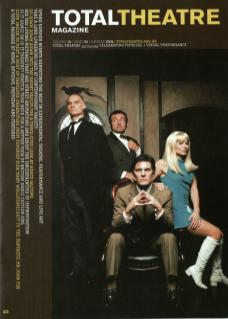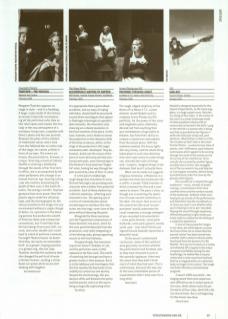It is appropriate that a piece about accidents, and our ways of coping with them, should itself be structured around three monologues that appear to fleetingly intermingle at unpredictable moments, the characters only chancing on a shared resolution in the final moments of the piece. In this case, however, one is drawn to assess the production on the character skills of the three actresses, which, at this stage in the production's life, begin somewhat underdeveloped. They do, however, build over the course of the piece to more decisively pitched emotional portrayals, most interestingly in Elle Moreton's ‘frustrated and forgetful' sister, feeling her way through her past assisted by a box of Post-It notes.
It is the piece's endearingly rough design that elucidates its tone, Richard Partridge's set providing each character with a shelter from potential accidents. Each of these shelters has a distinct emptiness, reflecting each character's loss. The opening use of a series of inventively descriptive arrowed signs to introduce the characters sets the tragicomic tone of the piece without labouring the point.
Alongside the three narratives runs the fragmented compositions of Shane Durrant's live piano, which for the most part feel detached from the production, only really integrating in a final driving coda, giving supporting muscle to the final tableaux.
Disappointingly, the movement sequences haven't ‘bedded-in' yet, and the performers seem a little awkward in the floor work. The motifs of searching feel stronger and have a greater clarity in their purpose. But it is in the tableaux and monologues that this trio reaches the heartache of our inability to control our own destiny. Despite the shortcomings, this production shifts well between the quirky and the pained, and is on the way to being a magically captivating show.

